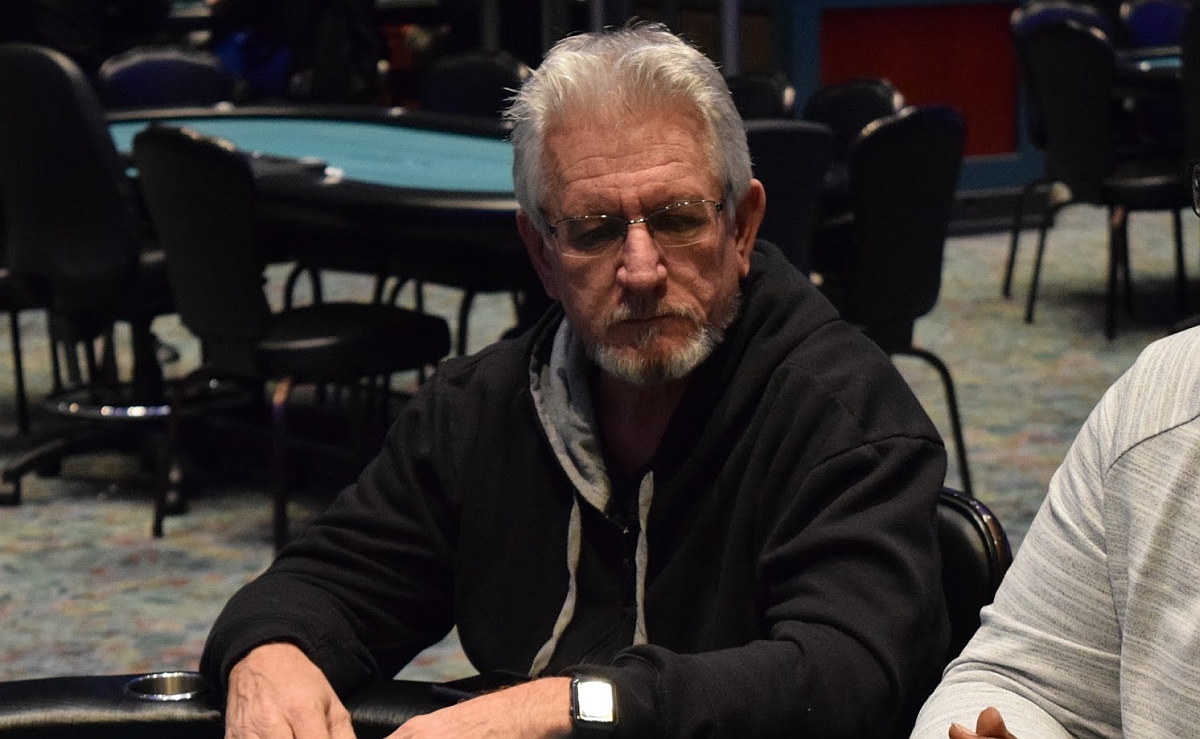A Connecticut poker player will be sitting on the sidelines for awhile after being sentenced to 14 months in prison in a tax-invasion case involving over $2 million in unreported income, nearly half of which came from his part-time professional poker career.

US District Judge Michael P. Shea sentenced Guy Smith on Friday in a Hartford federal court following the conclusion of a four-month case with no actual trial or discovery process. On the same day prosecutors filed charges for unpaid taxes from 2012 to 2016, Smith reached a deal.
The case focused on Smith’s underreported income from his personally owned business, Centerline Interiors LLC, but also included Smith’s unreported poker income for the same five-year span.
As part of the plea deal, Smith, 63, of Shelton, Connecticut, must also pay $821,415 in owed income tax, plus penalties and accrued interest likely to stretch the total well into seven figures. He’s scheduled to report to prison in late June, and once released, he’ll be on probation for an additional two years.
Well-known East Coast player
Smith is a familiar face in Connecticut’s Foxwoods and Mohegan Sun poker rooms, though he’s also played frequently in Atlantic City, Florida, Las Vegas, and even the Bahamas. According to a US District of Connecticut press statement, “Smith withdrew funds from both his business and personal bank accounts for his gambling business.” The statement added, “Smith concealed his gambling income from his tax preparer and paid no income taxes on more than $1 million in gambling winnings.”
A pre-sentencing memorandum obtained by CardsChat News shed more light on the case. “During the relevant years,” the memo reads, “Smith regularly engaged in gambling activities, including playing in poker tournaments at local and out-of-state casinos … Smith used cash for his gambling business by, in part, withdrawing funds from his Centerline business and his personal bank accounts. Occasionally, Smith did well in the various poker games and poker tournaments and made money doing so. Defendant Smith also engaged in illegal sports betting.”
All told, for 2012 and 2014-16, Smith’s unreported gambling winnings totaled $1,056,150.77.
The memo also detailed how Smith withheld certain information from his tax preparer, including some of his business income and most or all of his gambling income. The report noted, “Smith engaged in an affirmative act of evasion by willfully concealing from and not informing his tax return preparer regarding his gambling income or about the existence of his PayPal account into which his winnings were deposited.”
Unreported online poker income a possibility
Though not specified in the sentencing memo, a good portion of Smith’s unreported gambling income likely came from online income or sports betting. Prosecutors repeatedly cited Smith’s PayPal gambling transactions in the memo, yet the public numbers don’t add up.
For example, Smith’s Hendon Mob page credits him with career poker winnings of $236,580, far short of the million+ dollars in gambling income claimed by the IRS. Smith’s income for the years 2012-16 from recorded poker events is $157,669, an even smaller share of the unreported amount.
2016 was an exceptionally good poker year for Smith, who recorded his two largest official cashes — a win at Foxwoods worth $51,148 and a fifth-place showing in a Hard Rock Hollywood, Florida, tourney for $37,800.
Smith likely had numerous cashes in single-day events at Foxwoods and elsewhere, yet even four years of such cashes can’t account for the wide difference — nearly $900,000 — in poker winnings recorded online and the deposits the IRS investigators discovered coming into his PayPal account.
Smith could have faced longer sentence
Prosecutors also cited some extenuating circumstances as they argued for a longer prison sentence of 24 to 30 months. Though they acknowledged Smith accepting responsibility for the tax evasion, they noted he had previously been sent notices for the 2014 and 2016 tax years claiming that he appeared to owe extra monies that were due. Smith “repeatedly flouted those notices,” their memo states.
The prosecutors also mentioned Smith’s and his son’s businesses (in which he has partial ownership) receiving $700,000 in PPP (Paycheck Protection Program) loan money connected to the COVID-19 pandemic, though they did note that Smith’s adult daughter died earlier this year from COVID. “It is devastating, plain and simple,” the prosecutors added, but they argued it still didn’t merit a lessened sentence on a plea deal previously reached.
Nonetheless, Smith did receive a downward departure from the 24-month sentence the prosecutors hoped would be issued. In his own pre-sentencing memo, Smith raised numerous arguments for a reduced sentence, including several medical ailments, potential hardships for his business’ employees during his incarceration, and that his inability under US tax code to deduct losses from the online poker or offshore sports betting magnified the amount that the IRS claimed he owed.
The prosecutors scoffed at that last point, writing, “The Government understands the argument, that as a gambler Smith should be allowed to net his winnings against his losses as a matter of course, however that is not the law. Moreover, [the] fact that Defendant Smith also engaged in illegal sports betting and broke an additional law that is not accounted for in his criminal history nor as part of other relevant conduct, should not now be a benefit.”


